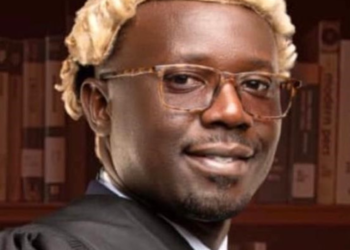The dununa reverse revolution: HH’s promises and the people’s betrayal
By Dr Lawrence Mwelwa
IN the heat of Zambia’s 2016 elections, a thunderous anthem emerged—Dununa Reverse. A pulsating, spirited tune that swept through the land like a whirlwind, its rhythm infectious, its message unmistakable. “Kick it in reverse,” it cried, echoing across villages and cities alike. Though it was the Patriotic Front’s (PF) rallying cry, the song has returned to haunt the political theatre, now repurposed by the people as a prophetic anthem for a nation that feels like it is indeed moving backwards, despite the rhetoric of progress. Like a calabash floating upstream, Zambia finds itself questioning the direction of its leadership under Hakainde Hichilema—once the bearer of the people’s greatest hopes.
Hichilema rode to power on the chariot of change, promising to pull the nation out of the pit. He vowed to uproot corruption, repeal oppressive laws like the Cyber Security Act, restore the dignity of governance, and shield the liberties of ordinary citizens. His tongue dripped with the honey of democracy, transparency, and economic rebirth. “Bally will fix it,” they chanted. But the same way the river may promise calm before revealing crocodiles beneath, promises too can be deceptive when not tethered to conviction.
Today, many of those promises lie in the dust like broken calabashes. One of the most jarring reversals is the signing of the very same Cyber Security and Cyber Crimes Bill he once denounced as an affront to freedom. As an opposition leader, he declared it an oppressive piece of legislation, unfit for any democracy. He warned of a government that, without a court order, would spy on its people—Big Brother, not just watching, but listening in. Today, under his watch, that same law was passed quietly, without the transparency he once championed, and now it hovers like a cloud over every voice of dissent. What was once deemed poison is now served as medicine.
He promised zero tolerance for corruption, yet corruption remains—mutating, shifting shape, and thriving in shadows. He pledged transparency, yet decisions of national consequence are made behind closed doors, and the people hear of them not from their own leaders, but from foreign embassies and online petitions. He vowed to uphold civil liberties, yet journalists and whistleblowers now tread carefully, as if walking barefoot through a field of thorns. He spoke of economic revival and job creation, yet many youths still roam the streets, diplomas in hand, hope slowly slipping through their fingers like millet in the dry season wind.
And now, a new promise is unfurled: give me another chance, and I will double the economy. But the elders say, “A hyena cannot wash its mouth clean and claim to be a vegetarian.” A man who has reversed his every vow cannot return with fresh promises and expect blind faith. “He who lies about fetching water may well return with a wet calabash, but the mouth of the thirsty knows whether it has drunk.” The people are no longer charmed by slogans and speeches; they are searching for fruits, not flowers.
Leadership is like farming—it is not enough to boast of seeds and rain, one must show the harvest. When HH came into power, the field was handed to him. The people, weary from the PF’s storms, entrusted him with their last reserves of hope. But now, many wonder if the farmer truly came to cultivate—or merely to sit in the shade and make new promises. For “when the dancing is too sweet, we must remember to ask who is playing the drum.”
Objectively, it must be said—HH has made efforts in some areas, particularly in diplomatic re-engagement and debt restructuring. But leadership is judged not only by intentions, but by outcomes. And the outcomes today speak loudly: laws that stifle, promises reversed, and a governance style that increasingly mirrors what he once opposed.
As Zambia stares down the road to the next election, one must ask—what does “forward” mean when every step seems to echo in reverse? The people now remember Dununa Reverse not as a PF chant, but as a chilling reminder of the direction their dreams have taken. HH may speak of doubling the economy, but “the goat does not forget the rope used to tie it, even if it grazes in a new field.”
To believe again, the people will not look at the drumbeats—they will examine the dance. They will not listen to words—they will weigh them against actions. For now, they remember, and they wait. And as another campaign begins, the nation holds its breath, wondering: will this be a forward march—or another sweet-sounding reverse?

























